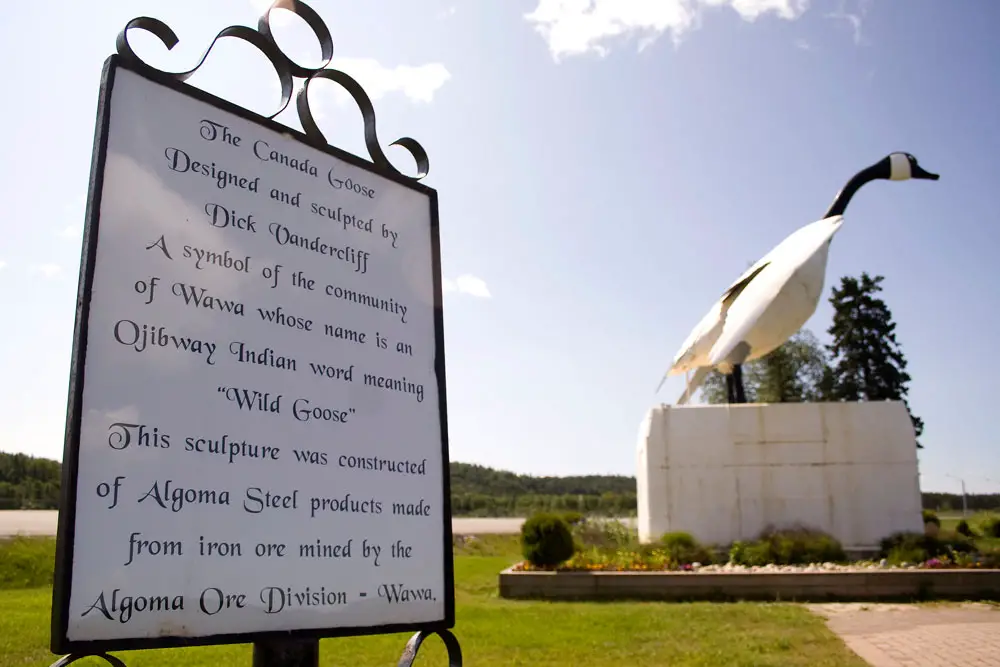
The convenience store and gas station chain known as Wawa opened its first store under that name on April 16, 1964 in Folsom, Pa. It drew its name from the small suburban burgh southwest of Philadelphia, where the company’s owner, George Wood, opened a dairy processing plant in 1902. The town of Wawa is believed to have drawn its name from the Native American word for “wild goose.”
With the milk-delivery business declining in the early 60s, the company shifted to Wawa stores, with the Palm Coast store opening on June 18 coinciding with the opening of its 900th store in New Jersey on the same day. More than 500 Wawas sell gas.
The Wawa name has come to be almost synonymous with the company, as if it were its origin. In fact, the word–the sound, the name–has innumerable applications, from its association with a Native American language to a West African tribe to a now-defunct Pacific island community. Here’s a brief summary of Wawa’s linguistic applications around the world.
In West Africa, Wawa is an endangered, unwritten language spoken, according to scholar Laura Robson, “by a few thousand people” called the Wawas, Muslims who live as subsistence farmers in 13 villages in the southern part of Cameroon. Wawa logs are also a type of lumber found in West Africa.
In the American West, “Chinuk Wawa is a unique expression of the linguistic heritage of the Pacific Northwest,” Henry Zenk wrote on the occasion of the publication of a Chinuk Wawa dictionary eight years ago, “particularly through the language’s association with the era of fur-company domination, before the region’s incorporation into the modern nations of Canada and the United States.”
In Canada, it’s a tiny municipality of 3,000 people famous for its goose and a little less famous for its gold mining and tourism and “where,” as in its eponymous stores, “you are always welcome.”
In Nicaragua, the Wawa River flows through isolated, sparsely inhabited jungle through the stunning vistas of the northeast part of the country. “Before reaching the Wawa River,” the missionary Wilhelm Siebörger wrote of his 1883 journey in the region, using imperious and condescending language typical for its time, “the traveler passes through the village of Kia. Prior to the Awakening there was not a single Christian here, and its people had an evil reputation.”
In the Middle East, WaWa was the title of a series of digital photographs produced in 2011 by a pair of Kuwaiti artists exploring gender identity and queerness. In the Solomon Islands northeast of Australia, Marau Wawa is a tiny island whose last remaining Wawans died out about a century ago, along, of course with their language, though some of its words have been preserved.
In Hong Kong, Wawa is a 33-year-old poet “trained in continental philosophy and classical singing,” and a dishwasher, who lived part of her life in America: “a day a life, between death and birth,/ under the moon, two shadows, flung to wilderness,” goes a poem she published last spring.
And according to New Mexico State University’s Tim Wright, birds, like people, have dialects, and “Wawa” is “what yellow-naped Amazon parrots (Amazona auropalliata) from northern Costa Rica squawk among themselves as they flock together.”





























Tap Dancer says
And of course, the Wah Watusi. – Interesting article.
Agkistrodon says
And you could add to the list constant complaining. Wawah.
Jeffrey Douglas says
Much needed fun read. Well done.
TeddyBallGame says
I always thought the name was taken from a Beach Boys song. Hint: WaWaaaaa….Little GTO.
Brian says
Very cool. I always wondered. Thanks again, FlaglerLive.
Scott says
i live in Wawa Ontario and yes we the goose,it was recently replaced again and is more beautiful than ever.come and see!
Diane says
My boyfriend of Puerto Rican heritage tells me that wawa is also P.R. slang for a city bus.
Darren says
I was from there I go there from time to time n never wanna leave! The town so Nice they named it twice Wawa